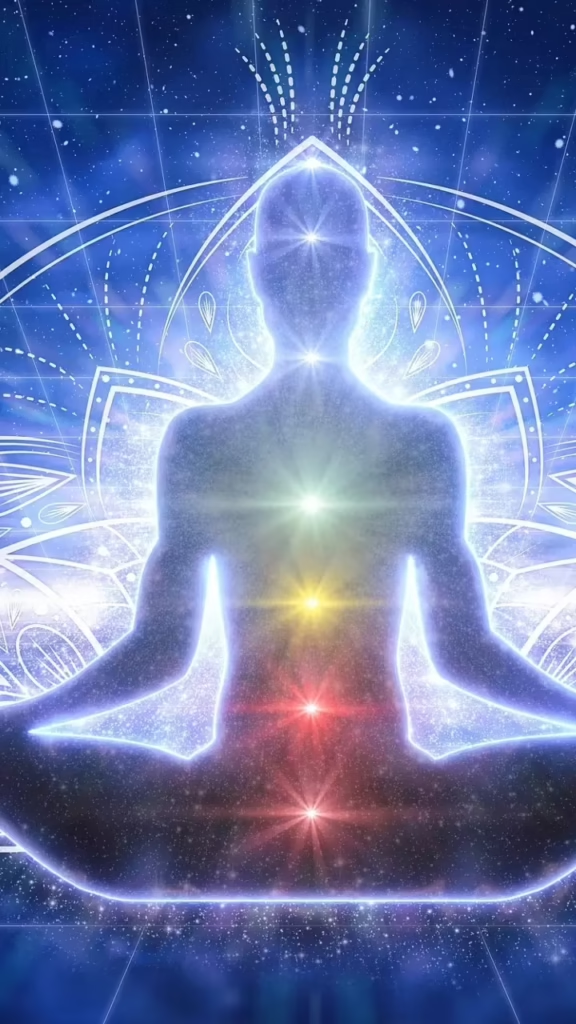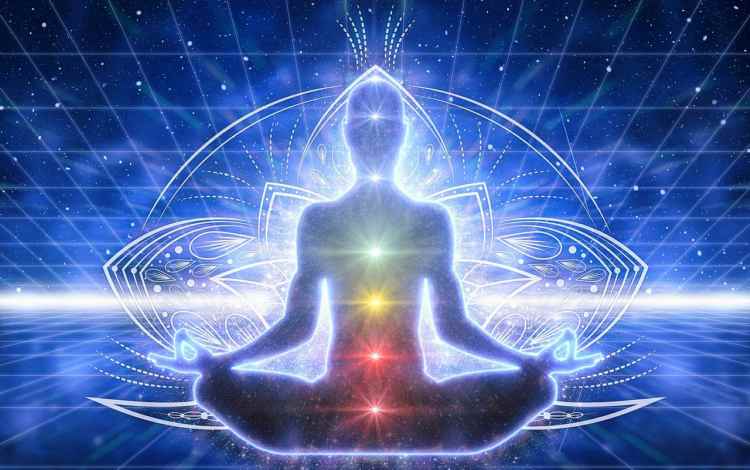In today’s fast-moving world, many people in India are searching for something deeper. Despite having a job, family, and even success, something often feels missing. That’s when the inner journey begins. This journey is called a spiritual awakening.
It is not about religion. It is about waking up to a new way of seeing life. You feel more alive, more aware, and more connected to everything around you. Let’s understand the spiritual awakening meaning, common signs, stages, and how it connects to the Indian way of life.
What Is Spiritual Awakening?

A spiritual awakening is when you begin to realise that there is more to life than just daily routines. You start looking for meaning, purpose, and inner peace. It is a shift in how you think, feel, and experience the world. You begin to live more consciously.
In Indian culture, this process is often described using words like atma-bodha, jagruti, or moksha. It is the first step toward the spiritual journey in India, leading to truth and self-realisation.
Also Read Stay Spiritual in a Busy Life: 7 Simple Practices That Work
Why Do People Experience Spiritual Awakening?
People from all walks of life can have this experience. It may be slow or sudden. Some common triggers include:
- A deep feeling of emptiness, even if life looks good from the outside
- Major life changes like the loss of a loved one, job, or relationship
- Health challenges or emotional breakdowns
- Moments of stillness, like during meditation, nature walks, or temple visits
- Global events like the pandemic, which made many reflect on life’s purpose
10 Common Signs of Spiritual Awakening
Here are the most common signs of spiritual awakening. These are clues that your soul is waking up:
- Disconnection from routine life – You feel something is missing, even during normal daily life.
- Desire to find deeper meaning – You start asking, “What is my purpose?”
- Questioning beliefs – Old religious or cultural ideas may stop making sense.
- Heightened sensitivity – You become more emotional, intuitive, and aware of others’ feelings.
- Vivid dreams – Your dreams may become symbolic or feel important.
- Noticing synchronicities – You see patterns or coincidences that feel meaningful.
- Emotional ups and downs – Mood swings, anxiety, or sadness without clear reasons.
- Physical changes – Trouble sleeping, changes in energy, or strange body sensations.
- Dark night of the soul – A difficult phase where everything feels lost, but something deeper is growing inside.
- Feeling of oneness – You start feeling more connected to nature, people, and even the universe.
These signs may not appear in any order. Some may come and go. Others may last for years.
The 7 Stages of Spiritual Awakening
Just like every journey, a spiritual awakening also follows stages. These stages help you understand where you are in the process.
1. The Calling
You feel a strong pull to change. Something inside says, “This can’t be all there is to life.”
2. Breakdown or Catalyst
Something shakes your world. A breakup, illness, or loss opens your heart.
3. Seeking Begins
You start searching for answers. You read spiritual books, watch videos, or visit ashrams.
4. The Dark Night
You feel lost and confused. Life feels empty. This is a painful but important stage.
5. Healing Starts
You begin to understand your fears, wounds, and patterns. You start to heal.
6. Light and Clarity
You feel more peaceful. You find inner strength. Your heart feels lighter.
7. Purpose and Service
You now want to help others. You live with more love, purpose, and peace.
The Indian Perspective: Awakening in Our Culture
India has always been a spiritual land. From the Bhagavad Gita to Yoga, from Vedanta to Buddhism, our traditions speak deeply about awakening.
- Saints like Ramakrishna, Kabir, Neem Karoli Baba, and Sri Ramana Maharshi showed that awakening is real and possible.
- Practices like Kundalini yoga, Vipassana, and Bhakti help awaken the soul.
- Even simple acts like going to a temple, chanting mantras, or sitting in silence can spark spiritual change.
The spiritual journey in India is rich and varied. Whether you live in a city or village, this path is open to everyone.
Tips to Support Your Awakening
- Meditate regularly – Even 10 minutes a day helps.
- Spend time in nature – Walk barefoot, sit near trees, or watch the sky.
- Keep a journal – Write about your thoughts and feelings.
- Talk to wise people – A guru, therapist, or elder can guide you.
- Read sacred texts – The Gita, Upanishads, or teachings of saints offer insight.
- Rest and eat well – Awakening can be tiring. Take care of your body.
FAQs on Spiritual Awakening
Q. How do I know if I’m spiritually awakening?
If you feel more aware, question your life, and feel drawn to inner peace, you’re likely awakening.
Q. How long does it last?
It’s different for everyone. Some feel it in weeks. For others, it may take years. It is a lifelong process.
Q. Is spiritual awakening scary?
Sometimes yes. It can bring confusion or sadness. But in the end, it leads to peace.
Q. Can I follow a religion and still awaken?
Yes. Awakening is not against religion. It can happen within any faith.
Q. Do I need to leave my job or family?
No. Awakening is about living better, not escaping life. You become more present and peaceful.
Most Imformation SRC- Wikipeida
Final Thoughts
A spiritual awakening is one of the most beautiful journeys a human can take. It doesn’t require a perfect life, lots of money, or any special status. All it needs is an open heart.
In a country like India, filled with spiritual wisdom and ancient practices, this path is natural and supported. Whether through yoga, Bhakti, meditation, or simple living, your path is valid.
If you feel the call within, don’t ignore it. Listen. Explore. Trust the journey.











1 thought on “What Is Spiritual Awakening? Meaning, Signs & Stages Explained for the Indian Soul”